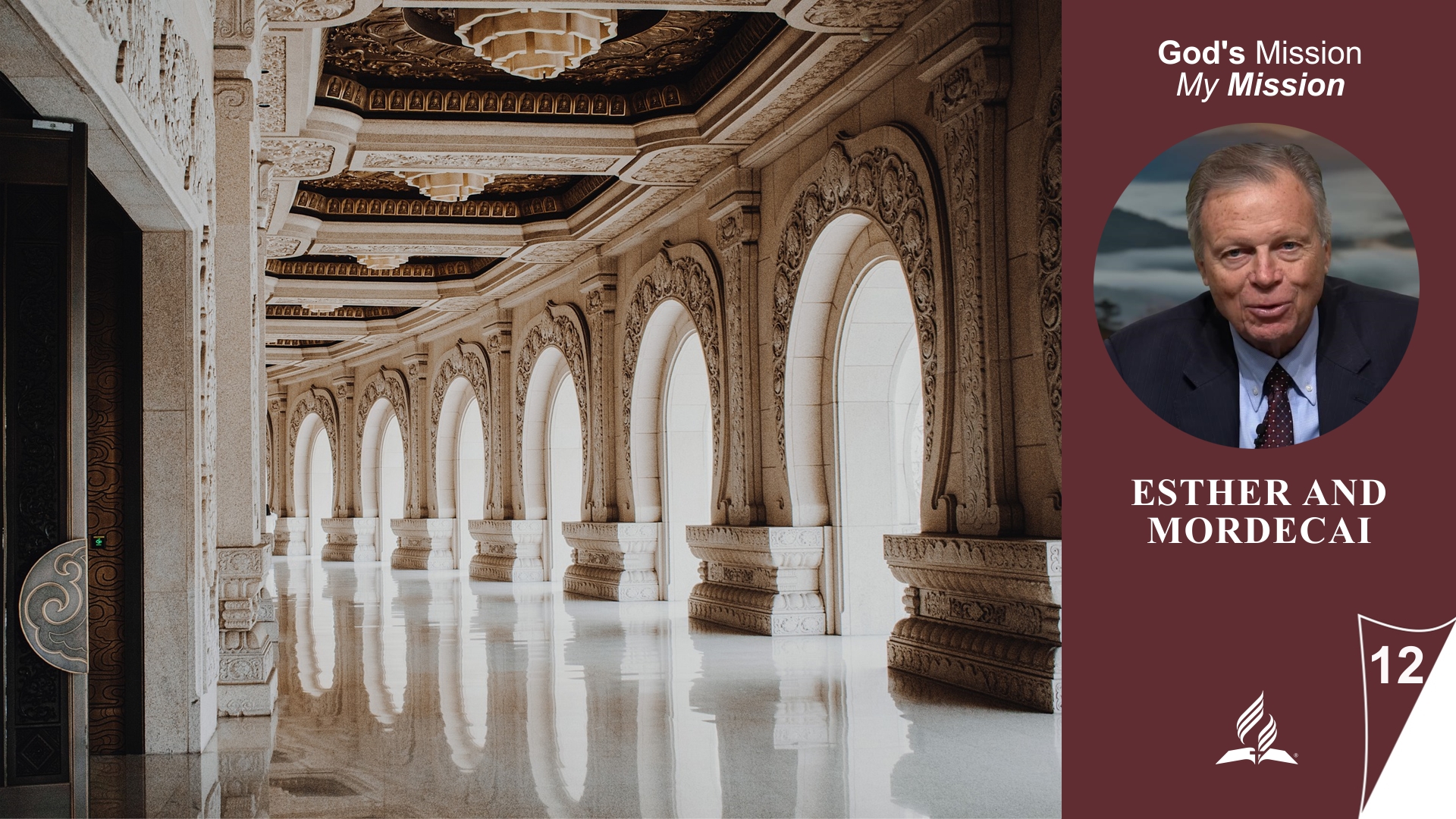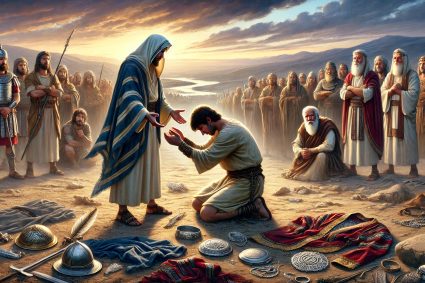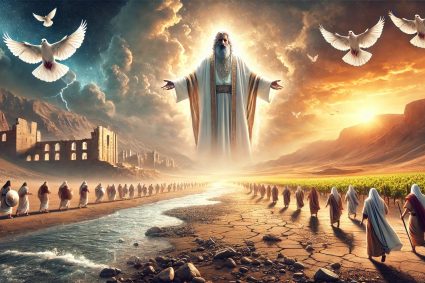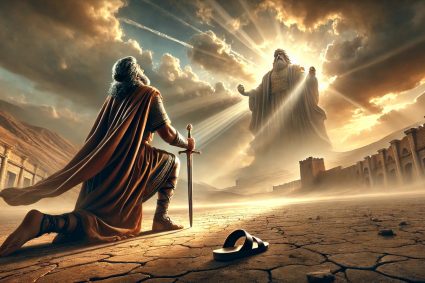
Series GOD’S MISSION, MY MISSION with Pastor Mark Finley |
Lesson 12: Esther and Mordecai |
In the captivating Lesson 12, we delve into the story of Esther and Mordecai, who live as captives in a foreign culture. This narrative reveals the challenges of external adaptation and emphasizes the significant inner loyalty to God that prevails even under the most adverse conditions. We gain a fascinating insight into life at the foreign court of the Persians, where Mordecai and Esther must act wisely to protect their identity. Mordecai’s steadfast testimony before Haman and Esther’s courageous approach to the king illustrate that even in seemingly hopeless situations, faith in God and the willingness to act can make a crucial difference. Ultimately, the Purim miracle demonstrates that God’s actions are often hidden in seemingly ordinary events, reminding us that His presence can be concealed beneath the surface of our daily lives.
Memory Text: Isaiah 49,6 – “I will give you as a light to the nations, that my salvation may reach to the end of the earth.” |
Content:
12.1 Captive in a Foreign Culture
Being captive in a foreign culture requires not only external adaptation but also inner loyalty. The history of the Jews under Babylonians and Persians shows that external laws alone do not guarantee true devotion to God. Even in an environment favorable to faith, loyalty must come from the heart to avoid sin and apostasy. In the end, determined loyalty overcomes the most adverse conditions.
12.2 In a Foreign Court
The story of Esther provides a fascinating glimpse into life at the foreign court of the Persians. Mordecai and Esther, strangers in a foreign culture, must act wisely to protect their identity. The decision to temporarily keep Esther’s Jewish heritage a secret highlights the challenges and the necessity of adapting to a hostile environment. In this politically and culturally complex situation, the narrative of Esther and Mordecai unfolds.
12.3 Mordecai’s Faithful Witness
Mordecai’s steadfast testimony before Haman depicts the confrontation between his firm faith as a devout Jew and the demands of Persian culture. His refusal to bow before Haman was based on his principle of worshiping only the Lord. By openly revealing his Jewish identity, Mordecai not only risked his own life but also that of his fellow Jews. In the midst of moral darkness at the royal court, Mordecai’s faith shines like the bright light of Daniel and his companions in Babylon.
12.4 For Such a Time as This
Esther revealed her Jewish identity at a crucial moment when Mordecai alerted her to the impending danger to her people. Her bold approach to the king, without a formal invitation, illustrates her willingness to risk her own life for the salvation of her people. Mordecai’s appeal to Esther’s responsibility and her subsequent dedication to fasting and prayer underline the strong faith that moved her to act at a critical moment. Esther shows that even in seemingly hopeless situations, faith in God and the willingness to act can make a crucial difference.
12.5 The Miracle of Purim
The Purim miracle in the story of Esther shows that God’s actions are often hidden in the seemingly normal events of life. Although God’s name is not mentioned in the Book of Esther, the Jews recognize His work in their deliverance. The festival of Purim, arising from this miracle, emphasizes how God can work through seemingly natural circumstances. The fact that even people from the nations converted to Judaism demonstrates the transformative power of God’s invisible intervention in our lives. Purim reminds us that God’s presence is often hidden beneath the surface of our daily lives.
12.6 Summary
Lesson 12 illuminates the story of Esther and Mordecai, who live as captives in a foreign culture. The narrative underscores the importance of inner loyalty to God despite external adaptation and shows that determined loyalty overcomes adverse conditions even in hostile environments. Mordecai’s steadfast testimony, Esther’s courageous approach, and the Purim miracle illustrate how faith in God and the willingness to act can have a decisive impact even in seemingly hopeless situations.
(Visited 44 times, 1 visits today)




















